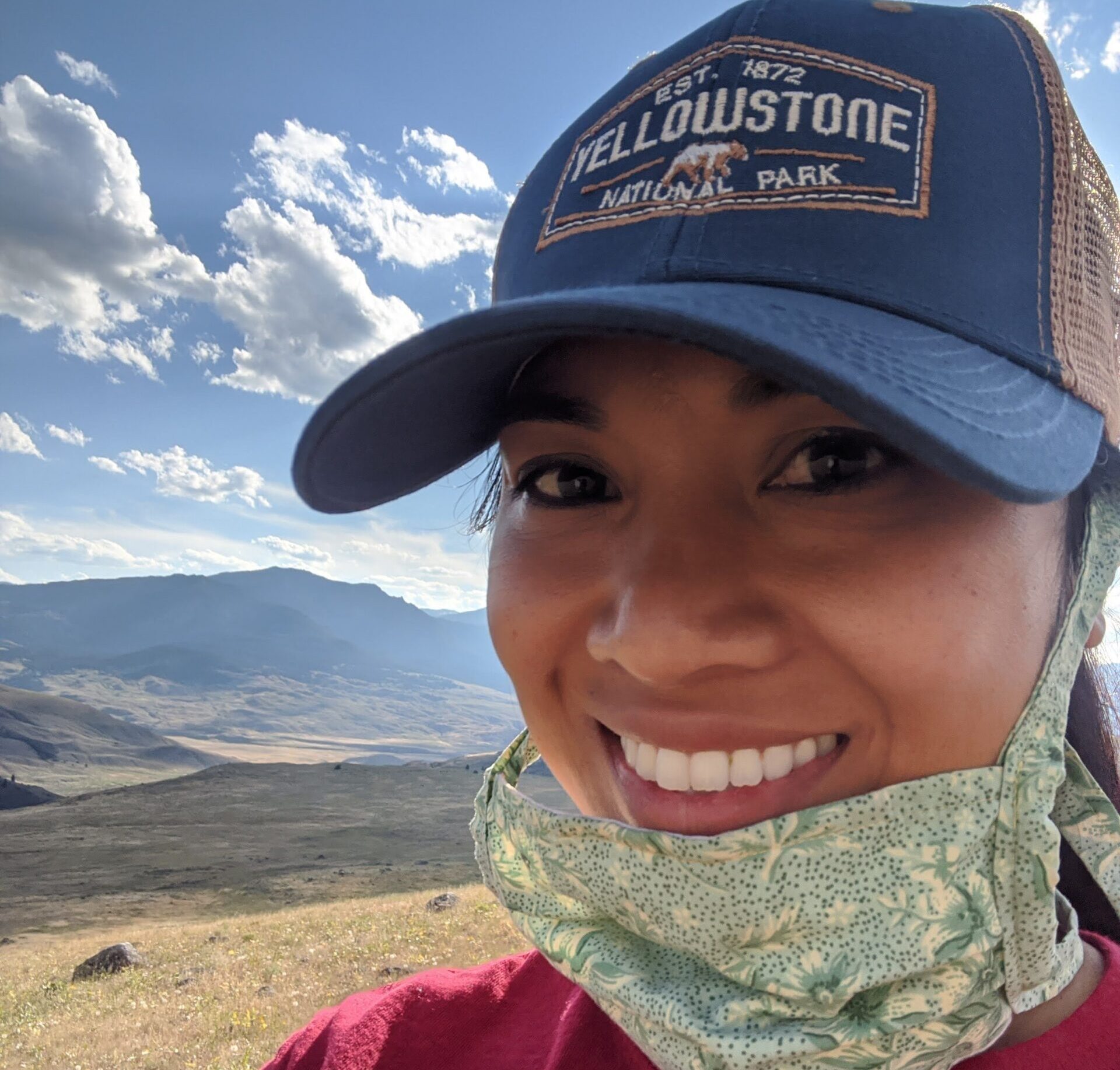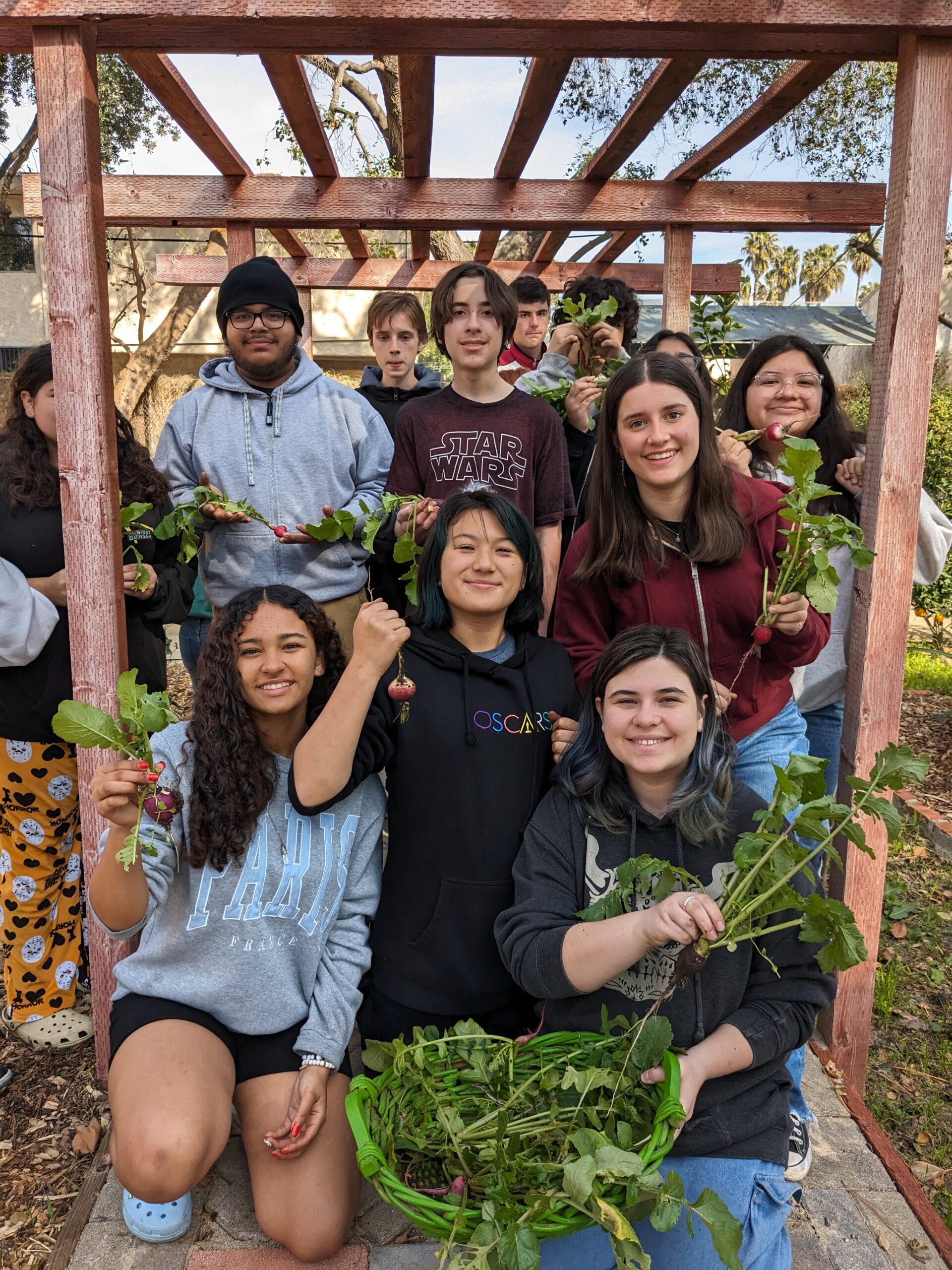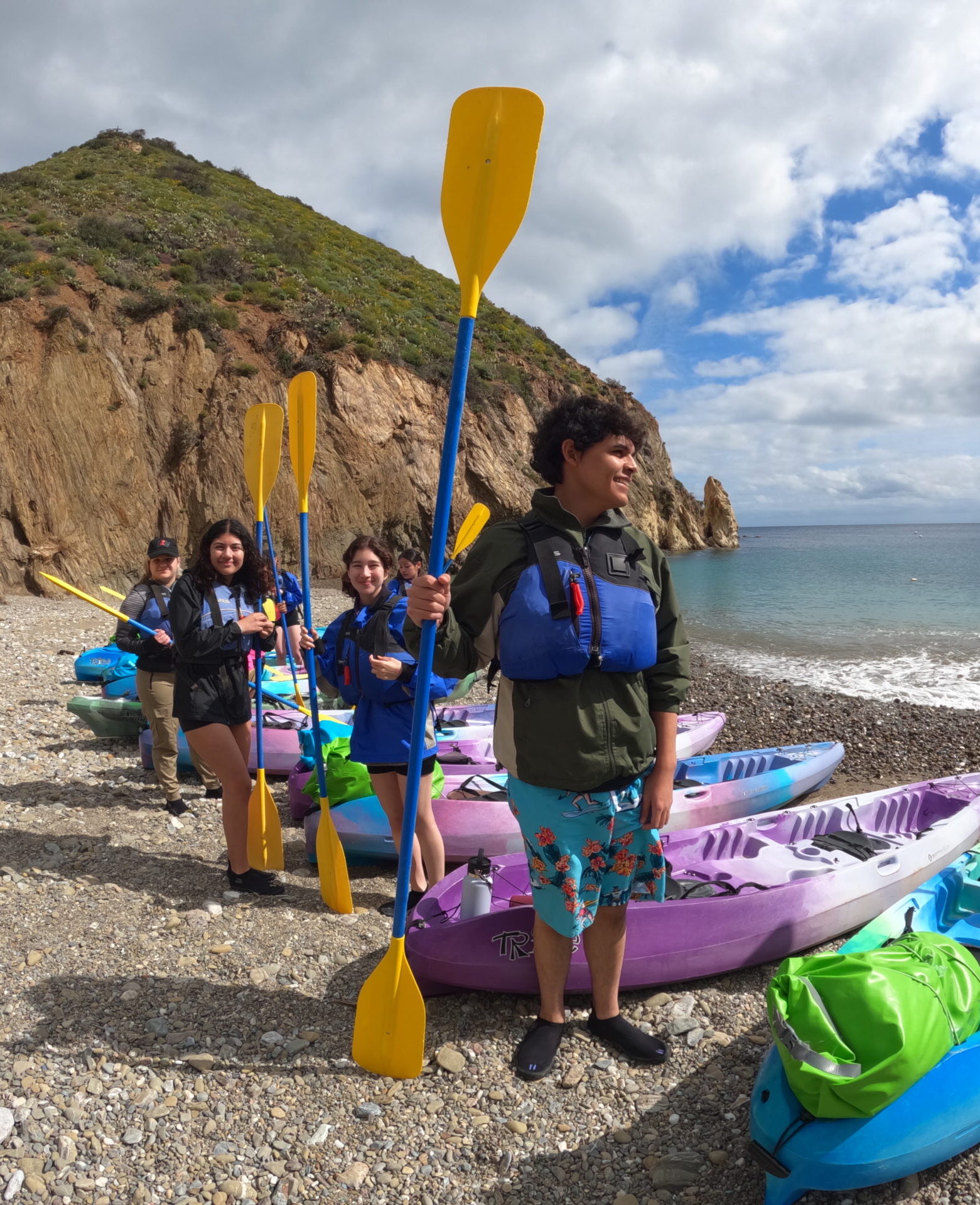Inspiring Environmental Education: Educator Spotlight on Kay Benitez
Wayfinder Society is for environmental educators who believe in the power of collective action. It is an online platform hosting a robust offering of classroom and teaching resources that makes it easy for educators to create a fun, dynamic, and engaging classroom and to inspire their students through environmental awareness and action. Every other month, we highlight an educator in our network.

Ms. Benitez is an educator at North Hollywood High School in the Zoo Magnet program in partnership with the Los Angeles Zoo. She teaches Environmental Studies, AP Environmental Science, Science Tech and Research, and Astronomy. North Hollywood High School is one of only 6 high schools in the nation partnered with a zoo and they were awarded #1 Top Magnet School in the nation by Magnet Schools of America in 2023!
In the Fall semester, Ms. Benitez’ 9th grade Environmental Studies students learn about the importance of biodiversity by studying zoos and their conservation programs, while also learning from the Association of Zoos and Aquariums. They learn about animal care by helping with feeding, enrichment and grooming of over 100 animals in North Hollywood High School’s 8-acre Agriculture area. In Spring, students learn about the impact of agriculture on the environment researching bioregionally adapted crops, amending the soil by weeding and running chemical analysis, then adding compost and manure from the animals and gardens. In addition, the students can grow food using sustainable permaculture practices. The growing lesson shifts into cooking lessons, where students learn basic knife skills and food prep to make simple dishes like lumpia, pico de gallo, ramen, and more!
In Ms. Benitez’ Science Tech and Research Class, she supports over 30 juniors and seniors as they create their own original research projects. First, they work together as a class; then, they work in teams, and finally, in the middle of the year, students begin working on their own to finalize their project. Last semester alone, her group of students conducted 7 student run labs! One student addressed the issue of not being able to compost invasive weeds. Their solution? They made different prototypes of paper made from morning glory, mustard and fountain grass plants. Another group is creating an aquaponics garden. Another is trying to create a larger space for their 10 rescued tortoises.
During her unit on biodiversity for North Hollywood Zoo and Biological Magnet students, she led the whole school in an engaging and fun bio-blitz contest. Using an app called iNaturalist, where students and scientists alike can map and observe biodiversity in a given area, Ms. Benitez and her students explored their local bioregion to find and identify as many species as possible. To help the matter hit home for her students, she invited a local biodiversity doctor, Levi Simons, from CALeDNA (California Environmental DNA), to their classroom to share his experience and understanding of the importance of species-rich biomes in their local bioregion.
This initial collaboration sparked the interest of many of her students, which led to future bio blitz being planned over multiple weekends spanning many miles in Los Angeles. While not mandatory, many of Ms. Benitez students were glad to help with biodiversity cataloguing and collection of eDNA samples. Students and community members trekked around numerous places on the Los Angeles River to collect samples using a syringe with a very fine water filter. Merging place-based education with hands-on learning, Ms. Benitez’s passion for the environment was on full display.
Not only did this activity help students make deeper connections with the natural world around them, but it showed them that they can make meaningful impact and contribute to a cause larger than themselves. The doom and gloom inherent in learning about environmental issues today can often be paralyzing, but when educators thoughtfully curate experiences for students, students can leverage all of that pent up energy to take action to be a part of the solution.
When teaching about the environmental topics, like climate change or biodiversity loss, it’s impossible to not bring up the threat of plastic production and the subsequent pollution that follows. For this reason, plastics are a topic brought up consistently throughout her classes, whether that be how they are made, why they are made, the effects of plastic production, and the effects of plastic pollution. While plastic impacts all of our lives in one way or another, Ms. Benitez finds that many of her students are shocked when they find out the convenience of plastics, especially single-use plastics, comes at a large cost to the health of people and planet. While recycling and other solutions that promise a quick fix are often centered in classroom conversations about plastics, Ms. Benitez understands that plastics recycling is not the only solution and what we must do is focus on waste reduction – what many call “turning off the tap” of plastic production. She emphasizes the importance of single-use plastic alternatives, including reusable cutlery, water bottles, bags, straws, and more. Another important piece to this conversation that Ms. Benitez touches on is the mystery that surrounds many of the products students use daily. Through conversation and thoughtful observation, students are encouraged to analyze where and how the products they use daily come to be. Are they made of synthetic or natural materials? Often, this simple exploration surprises many students (and adults!) with the many discreet ways plastics show up in our lives.
Shortly after the pandemic, the student’s plastic unit became personal when one of their donkey’s passed away after months of battling with digestive issues. After 11 years at their agriculture area, the necropsy revealed that their sweet donkey, Jenny, passed because she ate a piece of indigestible plastic from the LAUSD food program. It was a defining, seminal moment for her students, including her own daughter who was a 9th grade student in her class at the time. For her daughter, the experience propelled her to study ecology, and she is now a freshman at UC Davis working toward her degree.
Ms. Benitez is a shining example of an educator championing environmental education in their classroom, and we are not the only ones to think so. In fact, she was nominated for our mini-grant opportunity by a previous student of hers! Check out this snippet from this student detailing Ms. Benitez impact on her and other students:
“I believe Ms. Benitez is the perfect candidate for this grant because of her passion and open-mindedness. Her way of teaching is engaging and unpredictable in a way that incorporates great fun and makes the curriculum memorable. Passionate educators like herself make learning easier and more fun. Her ideals toward the planet are shown through her lessons and lectures, and she is the most in tune with a subject that an educator can be. Her optimistic perspective on the environment is contagious to students and teachers alike. Many students from the Zoo Magnet and North Hollywood High can vouch for how fun and engaging her class is, and as a student myself, I can guarantee a large portion of the students in this program call her their favorite teacher.”

Students proudly showcase their harvest in the garden.

Students participating in a bioblitz field trip.

Students work together to plant seeds.

Students kayaking on a field trip.
